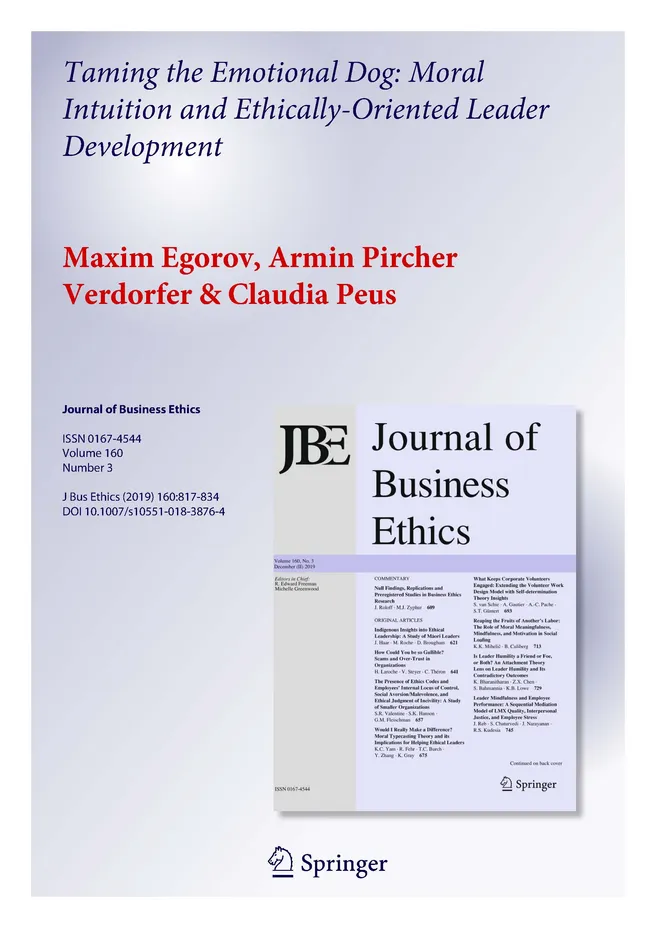The ethics of leadership has become a major theme in current management research and public demands for ethically-oriented leadership have been rising for years. But how can we actually promote the development of ethically-oriented leaders?
The recent paper by Maxim Egorov, Armin Pircher Verdorfer and Claudia Peus offers a novel perspective on this challenging question. Traditional approaches describe ethical decision-making of leaders as driven by conscious deliberation and analysis. Accordingly, existing approaches of ethically-oriented leader development usually focus on the promotion of deliberative ethical decision-making, based on normative knowledge and moral reasoning. Yet, a continually growing body of research indicates that a considerable part of moral functions involved in ethical decision-making is automatic and intuitive. In this article, the authors discuss the implications of this moral intuition approach for the domain of ethically-oriented leader development. Specifically, they introduce a conceptual model and develop a set of theoretical propositions, suggesting that the moral intuition perspective significantly contributes to effective ethically-oriented leader development. The discussion examines theoretical implications and practical applications of the presented propositions and outlines directions for future research.
